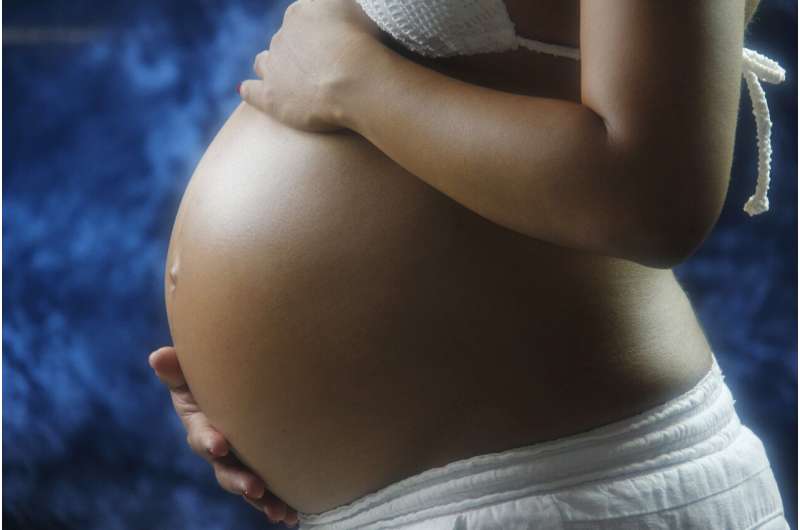Most women want children, but half are unsure if they will

Lisa Lock
scientific editor

Robert Egan
associate editor

As concern grows about America's falling birth rate, new research suggests that about half of women who want children are unsure if they will follow through—and many won't be that bothered if they don't.
The results show that the intention to have a baby is not just a "yes" or "no" question for many women today, said Sarah Hayford, professor of sociology at The Ohio State University and co-author of the study in Genus.
There's also a question of how certain they are in their goal to have a child and the intensity of that desire.
"People's feelings about having children are complicated, and we found there are a lot of nuances," said Hayford, who is also director of Ohio State's Institute for Population Research. "It suggests that there is no simple answer to the declining birth rate in the United States."
The U.S. fertility rate was stable at about 2.0 children per woman in the 1990s and early 2000s, reaching a peak of 2.12 in 2007, statistics show. But the fertility rate steadily declined in the aftermath of the Great Recession, falling to 1.62 in 2023.
The study was led by Luca Badolato, an Ohio State Ph.D. student in sociology. Co-authors were Hayford and Karen Benjamin Guzzo, professor of sociology at the University of North Carolina at Chapel Hill and director of the Carolina Population Center.
The researchers used data from the National Survey of Family Growth, a federally funded survey conducted by the National Center for Health Statistics, from 2002 to 2019. This included surveys of a nationally representative group of 41,492 women aged 15 to 44 about a broad range of fertility-related indicators.
Findings showed that there was little change during that time in the proportion of women who said they intended to have children. On average, 62% of women said they intended to have a child and 35% did not intend to, with only a small percentage saying they didn't know.
But up to 50% of the women who intended to have children said they were only "somewhat sure" or "not at all sure" that they would actually realize their intention to have a child.
Women who had higher levels of income and education were slightly more likely to say they were "very sure" they would have a child than those with less education and income. But even those with a bachelor's degree who said they were "very sure" they will have more children declined from 65% in 2014 to 54% in 2018.
And it is not just the certainty that may be affecting the fertility rate. The intensity of the desire mattered, too.
The study found that up to 25% of childless women who intended to have children also said they would not be bothered if they ended up not having a child.
"This not being bothered was especially high among younger women, and it increased over time among those who were younger," Hayford said.
"They are open to different pathways and different kinds of lives. If they don't become parents for whatever reason, it doesn't seem that upsetting to many of them."
One possibility often discussed for the declining birth rate is that young people today are unsure about the future of the country and the world, and that is keeping them from having children.
Hayford and Guzzo considered that possibility in a separate study, published recently as a chapter in the book "The Retreat from Marriage and Parenthood: Examining the Causes and Consequences of Declining Rates."
In this study they used survey data from the American Trends Panel, which surveyed 3,696 people.
That study found that as people's dissatisfaction with their own lives increased, they were less likely to think they would have a child. But concerns about the difficulty of life for today's young people and evaluations about problems in the community were not related to their goals to have children.
"It was a bit of a surprise to us, but it was only their personal situation that mattered to whether they expected to have children," Hayford said. "It wasn't so much what was going on in society that predicted their fertility goals."
Overall, the studies suggest it is very difficult to predict what will happen with birth rates in the United States and other developed countries.
"On the one hand there is a lot of latent desire and intentions to have children. But people have a lot of uncertainty about whether they will meet those goals, and many don't seem to worry that much if they do or don't have children," she said. "It is hard to predict what will happen next."
More information: Luca Badolato et al, Multiple dimensions of uncertainty in fertility goals: recent trends and patterns in the United States, Genus (2025).
Provided by The Ohio State University


















